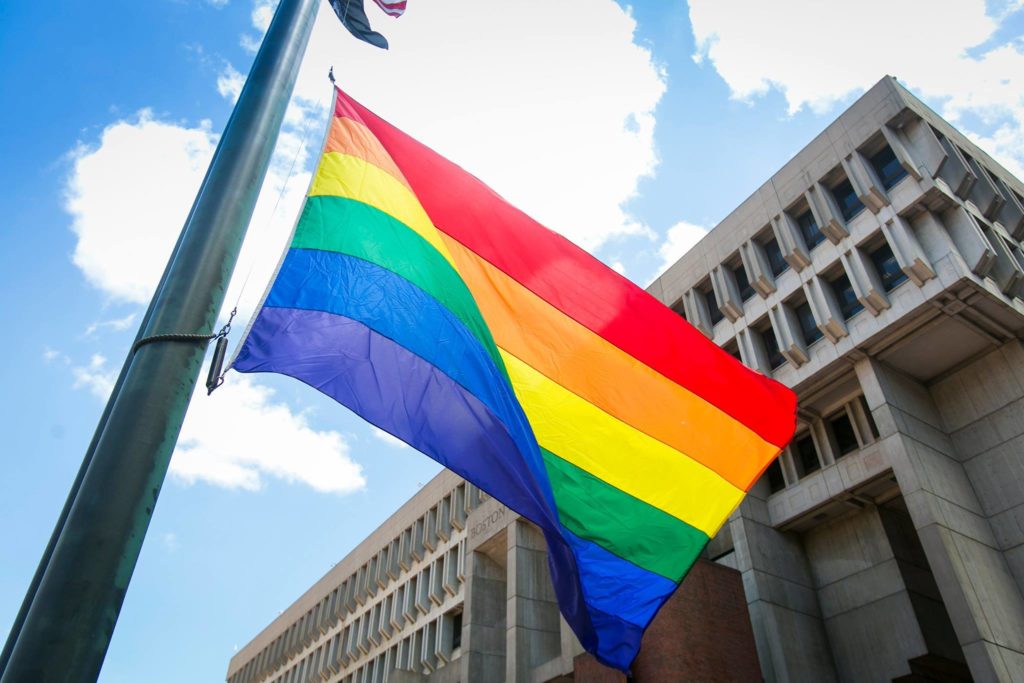This opinion piece was initially published in the Jamaica Plain News.
I am marching in the Boston Pride Parade, and I’m both excited and sobered. I’m excited because the celebration of our LGBTQ+ communities is full of joy, laughter, and camaraderie. I’m sobered because in the face of anti-LGBTQ+ court decisions, slow-moving local LGBTQ+ legislation, and a state ballot initiative that’s only necessary because so many people want to reverse much-needed protection for transgender rights, I’m reminded that we have so far to go.
What’s more, as we approach Pride, we also approach the anniversary of the Pulse Club shootings in Orlando. On June 12, 2016, 49 people’s lives were lost at the hand of hate. Another 53 people were injured.
The deep sense of loss and tragedy I felt after the Pulse shooting got me thinking about what more I could do in support of our LGBTQ+ communities. I started by being more intentional about uncovering my own deep-seated unconscious biases. An important part of my own journey has been assessing the ways in which institutions I’m a part of, even justice-oriented ones, perpetuate homophobia and transphobia (and other fear-based discrimination such as xenophobia). Where there is violence or injustice or even microaggression against one of us, there is the same against us all. As true LGBTQ+ allies, we must also stand up as champions in the day-to-day.
I think homo/transphobia would be so much less common in a world where every attempt to invalidate the unique beauty and perfect humanity of an LGBTQ+ person was met with fierce rebuke—and even better would be intentional education and trust-building, including from orientation- and gender identity–privileged people like me. In this and other justice work, I have found that these proactive responses in the day-to-day battle, especially in the face of opposition, distinguish a mere ally from a champion.
One example where champions, not just allies, are needed is the Public Accommodations Law. This law protects the safety, privacy, and sovereignty of transgender persons over their own bodies and establishes their rights as equal to those of cisgender people. There are those who out of fear, hate, and ignorance are trying to repeal this law. In my view, this is a life or death issue, as anti-LGBTQ+ violence and homicide disproportionately harms trans people, especially trans people of color. Even the presence of phobic ballot initiatives negatively impacts the mental and physical health of LGBTQ+ youth and adults (Rostosky et al. 2009), often already survivors of bullying or worse. It’s critical to champion this important law, especially in the places where many LGBTQ+ people have been least known, welcomed, and accepted.
I understand from my own personal experience the journey from ally to champion. As an ally, I’ve loved and supported gay and queer friends. As an ally, I’ve helped faith leaders embrace one another across historic barriers of race and orientation. As a straight person of color who leads on issues of systemic justice, I’ve found that this interpersonal advocacy alone is not enough to transform culture. For a long time, I thought I understood oppression against other underrepresented groups because as a black woman who grew up in poverty, I had experienced oppression. But while my race and gender are targeted, my gender identity and orientation still blanket me with privilege. I now work intentionally to reject the blindness my privilege allows and proactively to promote an end to homophobia and transphobia (along with racism and xenophobia).
As allies we rightly support the LGBTQ+ community, but it will take champions to help transform our culture so this kind of harmful legislative attack is no more. For instance, we can hold our legislators to not only signing off on and publicly praising but also to championing and passing the LGBTQ+ public education–related legislation that’s been quietly tabled by our legislature, such as the Healthy Youth Act for medically accurate sex education or the LGBT Awareness Training for Aging Service Providers. This would go a long way toward transforming hearts, minds, and culture and toward promoting justice for all. This November, a ballot question will allow every voter to say, “Yes, we want to keep the Public Accommodations Law” to ensure that “justice for all” extends to our transgender communities. As champions, let’s work to build unanimous support in all our communities.
Pride is not only an opportunity to celebrate. This year especially, it’s a time to champion true justice for all. That’s why at Pride I’ll march in solidarity with groups such as Freedom for All Massachusetts and Massachusetts Transgender Political Coalition to honor the courageous struggle and leadership of the trans champions on the front lines of our statewide battle against transphobia. I’ll remember the fallen champions at Orlando, the 49 killed and the 53 injured, who lived and live courageously each day in the face of opposition. I’ll march with Pride in solidarity, unity, and admiration and with understanding of my own privilege and my responsibility to work hard to open hearts and minds. I hope I’ll march with Pride alongside newly minted champions from my own communities of influence. We’ll march from June right up until November’s ballot question to uphold the Public Accommodations law. We’ll march beyond November 6th—not just because we can, but because we must. We’ll march, not just as allies, but as champions.

